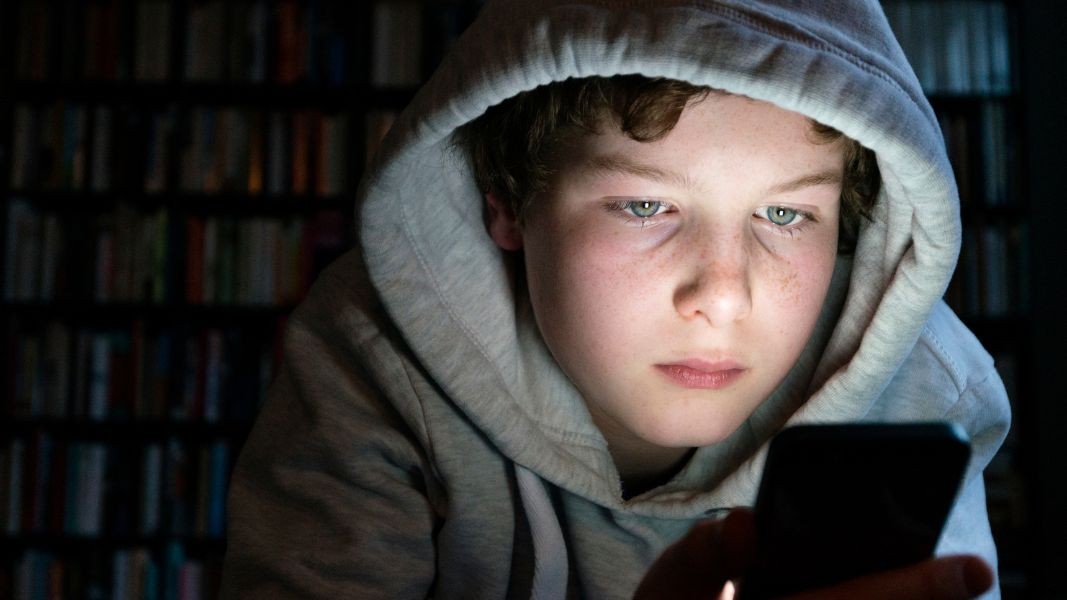96% of Bulgarian children watch TV several hours a day, 83% use a smartphone, indicates a survey conducted by Sova Harris. Just 13% say they read books for pleasure, and their parents are not fully aware of what their children are watching on the internet and on TV, the data show. And that is not the end of it – children start watching television at an average age of 2 years 6 months. The average age at which they start using an electronic device is 5 years 9 months. Children receive their first smartphone at around 8, and only start using a computer later, say the respondents – 1,305 children and 1,535 adults. 73% of the children using a smartphone do so every day, for an average of over 2 hours.
“We can divide the content children watch on the internet in the following way: 75% watch music videos, 60% - TikTok content, 42% - films and TV shows,” Galina Milkova from Sova Harris agency says. Even if parents have set limits on the information and the genres their children have access to, very often there is no adult around when they use an electronic device.
“Our conclusion is that parents do not know well enough what content their children are using – whether they are watching television or playing on their mobile device. In the survey, parents say that the media content their children use is helpful most of all in developing the children’s social skills, followed by their creativity, and the child’s physical activity is lowest down the line. Which means that most parents believe that the media content is actually most damaging to the child’s physical activity,” Galina Milkova says.
The conclusions from another survey, commissioned by the Council for Electronic Media, also show excessive screen time for school-goers. This has a dire effect on their psyche, and on their integration and discipline capacity. 
Believing that media will help children develop emotionally is socially naïve, she says.
“I believe parents should be in the focus of this kind of understanding. What has changed in families is connected precisely with conveying the rules and entering the realm of civilization, because one more thing schools complain of is that rules get broken and the words by persons of authority, adults, have no value for children, and that means there is something in the foundations that is very much impaired,” school psychologist Anet Marinova says. 
That is why it is no accident that the school is burdened with society’s expectation of doing something about what the psychologist calls “the suffering of childhood and adolescence from forms of a social bond pathology”.
Parents need to have a better media literacy and know how to talk to their children about the internet risks, explains psychotherapist Detelina Stamenova:
“It was an unpleasant surprise to find out that 33% of parents use electronic devices to put their children to sleep, and that children use electronic devices before going to bed, i.e. between 8 and 12 PM. That prevents them from going to sleep which, in turn is damaging to all their other abilities.”
The parents of the generation born after the year 2000 need general guidelines like this that will help show them how to minimize the harmful effects of electronic devices on the health of their children, the psychotherapist says.
Interviews by Tsvetomir Tsvetanov, BNR-Vidin
Text by Yoan Kolev
Translated and posted by Milena Daynova
Photos: Pixabay
Bulgaria ranks last among EU Member States in terms of life satisfaction. This is according to Eurostat data for 2023 published today . With an average level of the Community indicator of 7.3 points out of 10, Bulgaria scores 5.9. Finland tops the..
As winter numbs the wilderness, the tortoises hibernate in their shelters, protected from the cold and outside threats. But what happens to them during this time? Where do they feel safest and when can we expect them to wake up? In the village of..
On January 25 this year, the Bulgarian National Radio will celebrate its 90th anniversary. The celebration will be accompanied by various initiatives, culminating in the ceremony of presenting the Annual Radio Journalism Awards "Sirak..
Babinden, or Midwives' Day, was once again this year celebrated across the country with songs, dances and ritual re-enactments. The day of midwifery was..
Bulgaria ranks last among EU Member States in terms of life satisfaction. This is according to Eurostat data for 2023 published today . With an average..
Bulgarian gardeners have been bringing the glory of Bulgaria to Croatia for more than a century and a half. They were true "ambassadors" of the humble..

+359 2 9336 661
